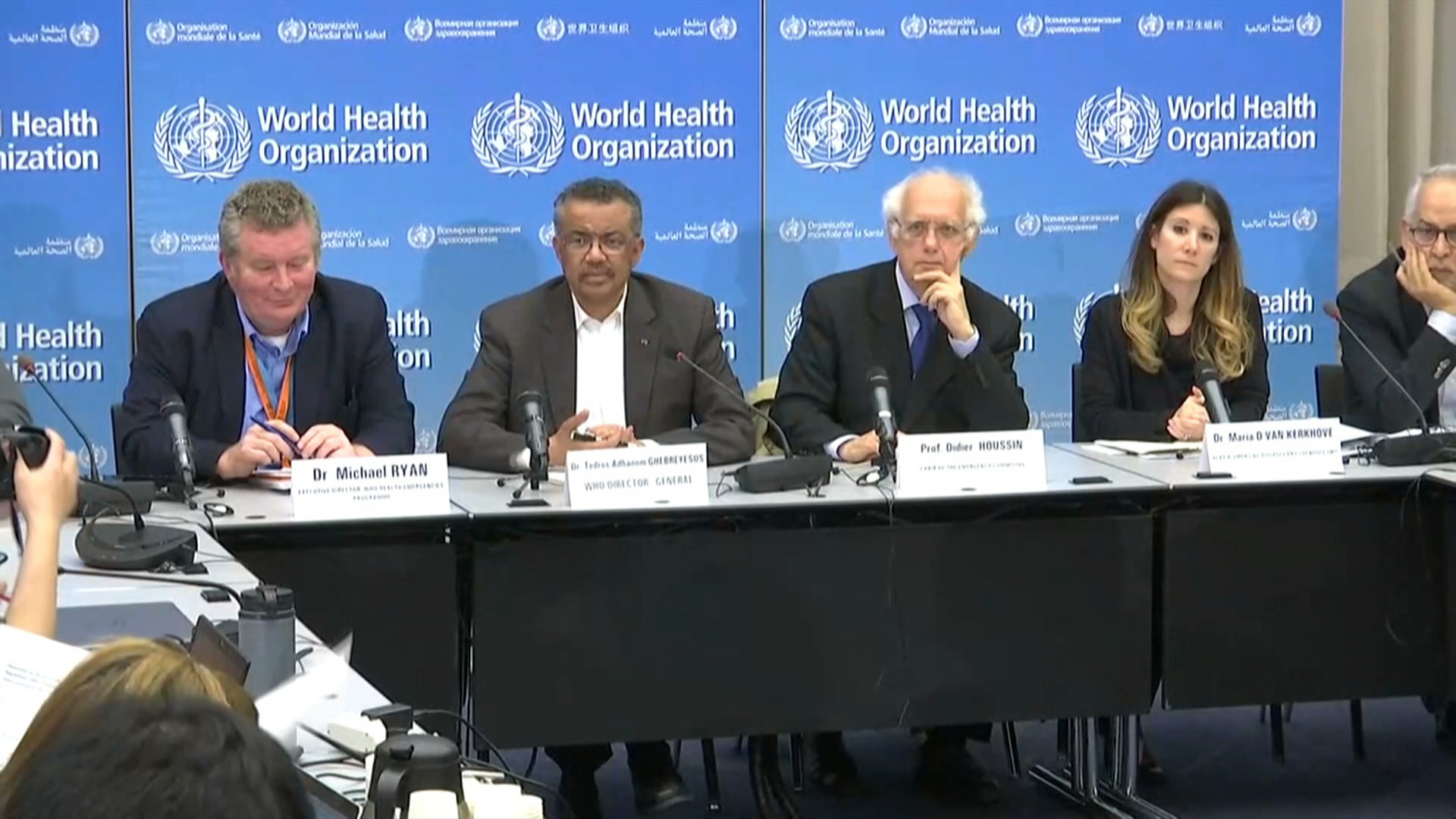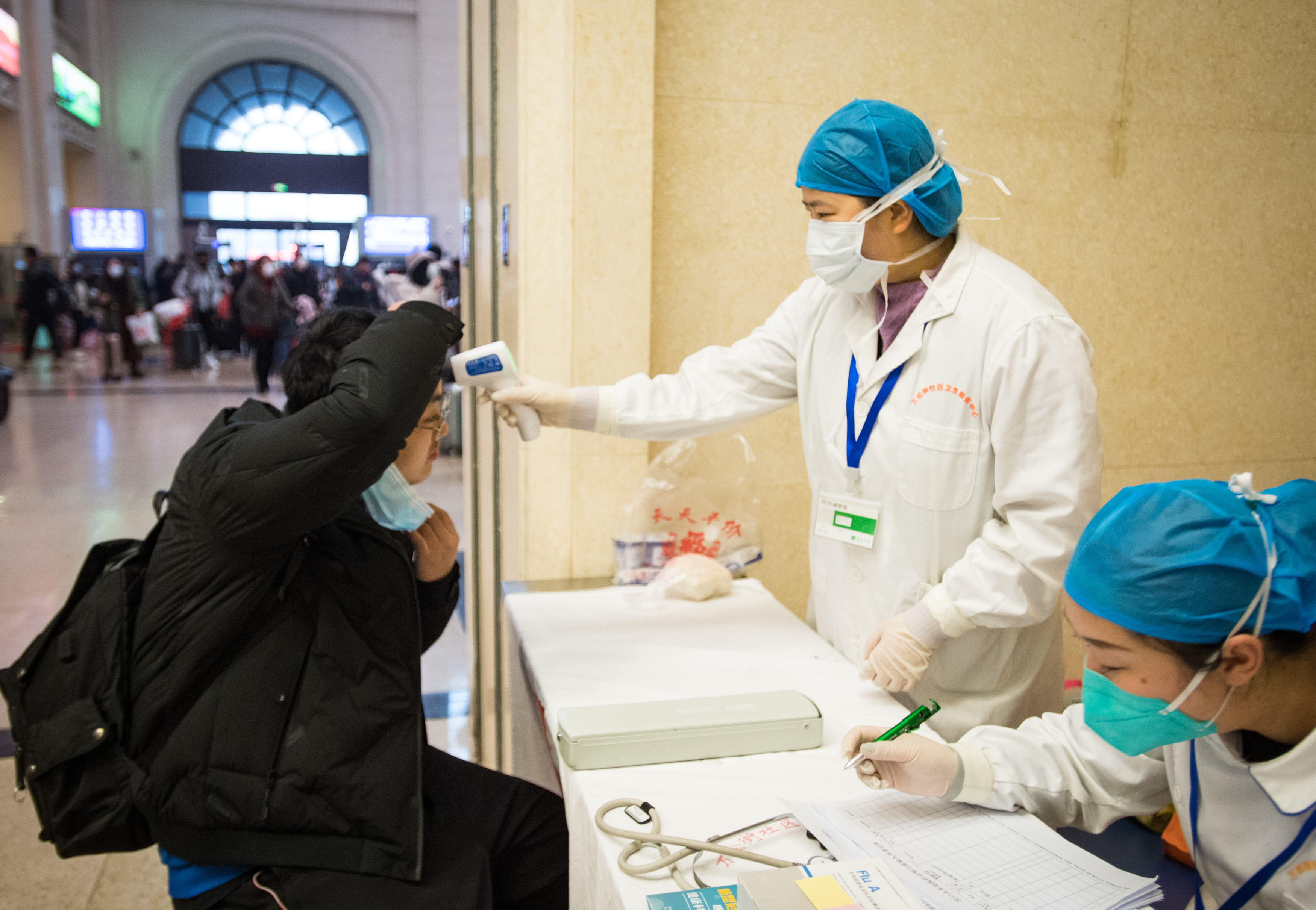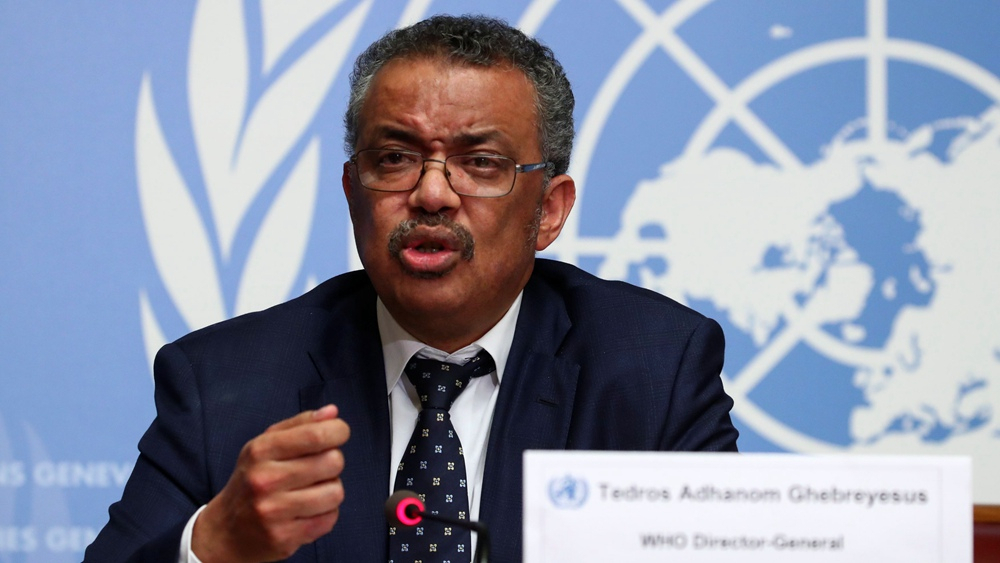
Editor's note: Jonathan Arnott is a former member of the European Parliament. The article reflects the author's opinions, and not necessarily the views of CGTN.
The Director-General of the World Health Organization, Tedros Adhanom Ghebreyesus, followed the advice of a panel of 16 independent experts and declared a global public health emergency in response to the spread of the novel coronavirus on Friday.
I believe he was absolutely correct to say that this is a time for "facts, not fear", "science not rumors", and "solidarity, not stigma". The negative influence of social media has seen rumors and scare stories abound, amplifying already unhelpful comments which we've been seen in the Western media.
As Harvard epidemiologist Dr. Eric Ding has pointed out, the reason that such an emergency was not declared last week was that the data was not yet available to support such a decision. Information about transmission rates, for example, was crucial.
The declaration of an emergency is rare, but not unprecedented: this is the sixth time since 2010 that the World Health Organization has declared such an emergency (Public Health Emergency of International Concern). The decision is reasonable and evidence-based, not intended to induce panic but simply to ensure that there is a global response to a potential global threat. There is also an ongoing emergency in the Democratic Republic of Congo over an Ebola outbreak which began last year.

A medical worker takes a passenger's body temperature at Hankou Railway Station in Wuhan, central China's Hubei Province, January 22, 2020. /Xinhua Photo
A medical worker takes a passenger's body temperature at Hankou Railway Station in Wuhan, central China's Hubei Province, January 22, 2020. /Xinhua Photo
Cases of the novel coronavirus have been confirmed in every region of China, and 18 other countries worldwide. More than 9,000 cases have now been reported worldwide, with 171 deaths in China as of the press time.
The declaration of an emergency is about ensuring that every country treats this with sufficient gravity: if any one country fails to implement the necessary measures to prevent further spread, it could cause huge problems for the rest of the world.
As the virus continues to spread, an unprecedented international effort is underway to fight it. China shared the genetic code with researchers around the world, and progress has already been made towards developing a vaccine which could eventually fight it.
Such international cooperation – Chinese and American researchers working together towards a common goal – is positive and heartwarming, particularly in times which have been difficult for international relations. Getting a vaccine ready for human trials will take time, though, and in the meantime it's vital to prevent it from spreading further.
Dr. Tedros Adhanom Ghebreyesus praised the Chinese response, saying that China "identified the pathogen in record time and shared it immediately, which led to the rapid development of diagnostic tools… we would have seen many more cases outside China by now – and probably deaths – if it were not for the government's efforts, and the progress they have made to protect their own people and the people of the world."

The Director-General of the World Health Organization, Tedros Adhanom Ghebreyesus, praises China's response to the coronavirus outbreak. /Xinhua Photo
The Director-General of the World Health Organization, Tedros Adhanom Ghebreyesus, praises China's response to the coronavirus outbreak. /Xinhua Photo
The problem with 2019-nCov is that the symptoms are often mild enough, at least at first, for the infected persons to still be walking around and infecting others. If the virus spreads globally beyond any chance of containing it, the death toll could be significant – not, perhaps, as bad as the most outlandish claims of tabloid newspapers, but still a clear global emergency.
It's still possible that, a couple of months from now, the virus will be completely under control and cases will drop – that the international medical response will be sufficient to eradicate this new coronavirus on its own. Governments cannot assume that this will be the case. They have to apply the precautionary principle, being ready and prepared for the worst-case scenario.
The World Health Organization correctly fears the consequences if the virus was to take hold in a country with a less robust healthcare system. The concern here is more about developing nations with much lower healthcare budgets and technology.
Emergencies and fear of the unknown bring out both the worst and the best in people: whilst there have been reports of assault on doctors at a Wuhan hospital, there are also many wonderful stories of people helping each other. Human nature is to fear the unknown; with a 24-hour news cycle, people in countries without a single case of the coronavirus are being made aware of it on an hourly basis.
It is still most likely that this virus can be beaten before it becomes a global pandemic affecting hundreds of millions of people across the world. If such a disaster is averted, it will be a result of an unprecedented rapid response to such a significant threat. In that context, I welcome the World Health Organization's decision: the more resources that become available to keep the virus under control, the better.
(If you want to contribute and have specific expertise, please contact us at opinions@cgtn.com.)